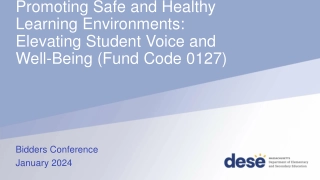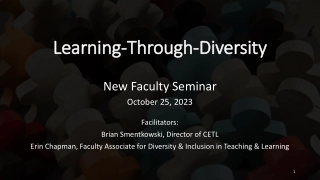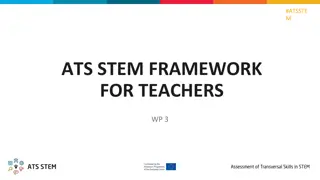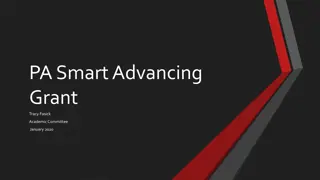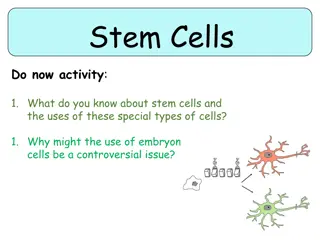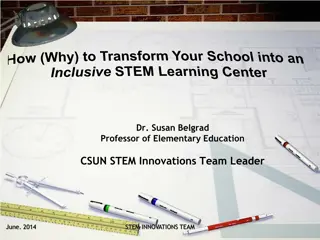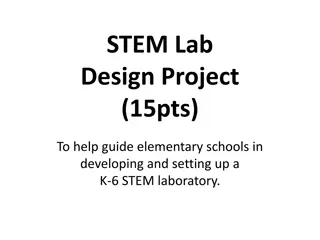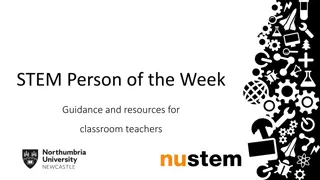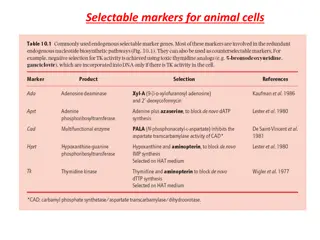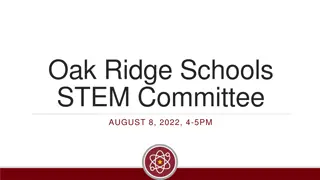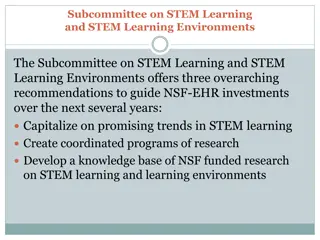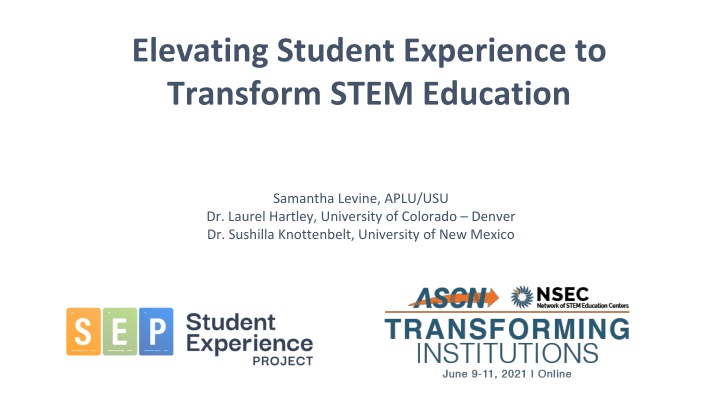
Elevating Student Experience in STEM Education Transformation
Explore how elevating student experience can transform STEM education. Discover insights from the Student Experience Project and the impact of learning mindsets on academic outcomes. Learn about research evidence on instructor mindsets and strategies for creating a more supportive classroom environment. Meet panelists driving change in STEM education.
Download Presentation

Please find below an Image/Link to download the presentation.
The content on the website is provided AS IS for your information and personal use only. It may not be sold, licensed, or shared on other websites without obtaining consent from the author. If you encounter any issues during the download, it is possible that the publisher has removed the file from their server.
You are allowed to download the files provided on this website for personal or commercial use, subject to the condition that they are used lawfully. All files are the property of their respective owners.
The content on the website is provided AS IS for your information and personal use only. It may not be sold, licensed, or shared on other websites without obtaining consent from the author.
E N D
Presentation Transcript
Elevating Student Experience to Transform STEM Education Samantha Levine, APLU/USU Dr. Laurel Hartley, University of Colorado Denver Dr. Sushilla Knottenbelt, University of New Mexico
The Student Experience Project SEP Cohort Learning Partners
Research Evidence 150 STEM instructors 602 courses Struct. Disadvantaged Struct. Advantaged 7 semesters Racial academic outcome disparity is more than twice as large in classes taught by fixed-mindset instructors 15,214 students Canning, Muenks, Green, & Murphy (2019). STEM faculty who believe ability is fixed have larger racial achievement gaps and inspire less student motivation in their classes. Science Advances, 5:2. Self-reported STEM Instructor Mindset Beliefs
Supportive Instructor and Course Interactions Classroom practices that support more equitable student experience Workshops and professional development opportunities Frequent data about how students are experiencing classroom environment Regular meetings to share data and lessons learned Communities of Practice
Panelists Laurel Hartley Sushilla Knottenbelt Senior Lecturer III, Department of Chemistry & Chemical Biology Director, Combined BA/MD Degree Program Associate Professor, Department of Integrative Biology Co-Director, STEM Learning Assistants Program

